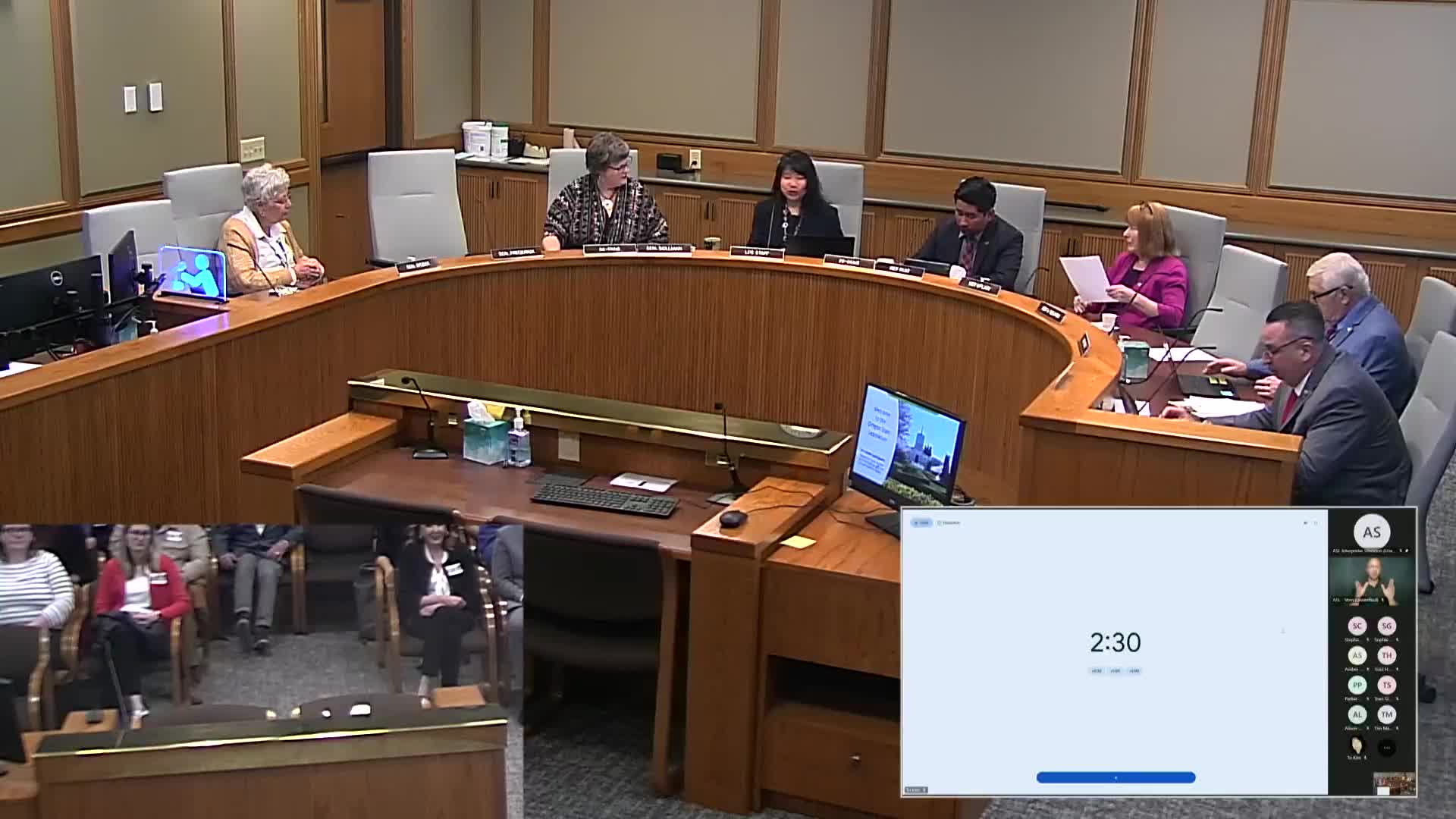Public hearing on SB 5525: dozens of students, faculty and trustees urge full funding for Oregon community colleges
Get AI-powered insights, summaries, and transcripts
Subscribe
Summary
At a joint Ways and Means subcommittee hearing April 28, about two dozen students, faculty, college leaders and trustees asked legislators to fully fund Senate Bill 5525 — a $920 million request for the Community College Support Fund — and to approve related proposals for pay parity, student basic needs and expanded financial aid.
SALEM, Ore. — The Joint Committee on Ways and Means’ Subcommittee on Education held a public hearing April 28 on Senate Bill 5525, with roughly two dozen students, faculty, college trustees and workforce partners testifying in favor of fully funding Oregon’s 17 community colleges at $920,000,000 for the 2025–27 biennium.
Supporters told the committee that full funding would keep tuition manageable, preserve career and technical programs and help students overcome basic‑needs barriers that interfere with enrollment and completion. Dr. Luz Vasil Villarreal, a retired educator, said she was speaking from five decades in higher education and urged lawmakers to “invest in 920,000,000 for the community college support fund to keep tuition manageable and maintain academic quality.”
The hearing centered on SB 5525 but witnesses repeatedly tied that bill to several related requests: an additional $150,000,000 for the Oregon Opportunity Grant to expand financial aid for low- and moderate-income students; $40,000,000 for adjunct/part‑time faculty pay parity (House Bill 2669); and $22,000,000 to fund a student basic‑needs package (cited as House Bills 3182 and 3183). Several speakers also voiced support for Senate Bill 979, which would create a Students with Disabilities Success Work Group to study accessibility and policy gaps.
Why it matters: Testimony framed community colleges as a statewide workforce engine and an access point for first‑generation and returning students. Multiple speakers said underfunding forces tuition increases, program cuts and hidden fees that push vulnerable students out of college. Amber Smith, director of nursing at Valley Family Healthcare, said CTE programs are “expensive to operate” but essential to supply nurses, medical assistants and other roles; she asked the committee to fund the CCSF at $920 million so colleges can meet employer demand.
Details and examples: Several witnesses described the concrete costs and barriers students and disability‑service offices face. Andrea Graham, accommodations project coordinator at Lane Community College, told the committee that converting textbook chapters to braille can cost thousands of dollars and that a single page of braille formula can cost about $180; she said text‑to‑speech and other assistive technologies can cost thousands per license. Nicholas Monroe, an assistive technology specialist, said accessibility is not just infrastructure but staffing, training and consistent procedures across institutions.
Faculty advocates focused on pay parity. Part‑time faculty testified that they routinely teach the same courses and maintain comparable credentials to full‑time colleagues but earn substantially less. Tracy Hodson, a history instructor at Chemeketa Community College, asked the committee for an additional $40 million in the CCSF to address the “permanent underclass” of adjuncts who lack time and pay to support students outside class. Multiple part‑time instructors said higher pay in neighboring states draws experienced educators away.
Student testimony underscored how grants and on‑campus supports change lives. Sophie Gibson, a Lane Community College student pursuing a certificate in addiction studies, said, “I wouldn't have been able to come without the Oregon Opportunity Grant and assistance from my financial aid,” and described relying on campus services such as food pantries and child care to stay enrolled. Other students and trustees provided rural perspectives, noting that community colleges are often the only accessible local option for postsecondary training.
No committee vote was taken at the hearing. The subcommittee chair closed public testimony after about 27 speakers and invited written testimony, which the committee said will be accepted on OLIS for 48 hours following the hearing.
What’s next: The hearing served as an opportunity to collect testimony on SB 5525 and related bills and to document the range of student, faculty and employer priorities tied to funding levels. Committee members did not take legislative action during the hearing.
Ending: Speakers representing institutions across Oregon urged the committee to treat the request as an investment in the state’s economy and workforce. “Community colleges work for Oregon,” said Lisa Scarry, president of Mount Hood Community College and chair of the Oregon Presidents’ Council. The committee closed the public hearing on SB 5525 and adjourned for the day.
